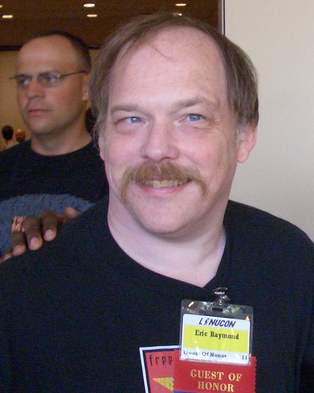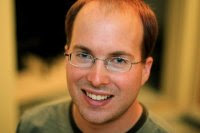Friday, November 27, 2009
Website of world's richest man
I would also suggest to read some of its pages. Content is free of buzzwords with to-the-point information and personal tone.
This website is not an exception. Personal and business websites of Jakob Neilson, who is considered authority on making usable websites, are also worth looking at.
There are countless others including the one you use daily.
Thursday, November 12, 2009
Ridiculous automation
So the next step was to get another ticket from the "automatic" parking meter. An attendant girl standing besides that meter helped me to get the ticket and also provided the 5-rupee coins which I did not have.
When coming out of parking, both tickets were collected and checked by the guard standing there. The first ticket was checked for vehicle number (to make sure I was not stealing someone else car) and second was checked for the parking time. (to make sure that I did not overstay)
This new system just makes things difficult for everyone. If the sole purpose is to collect more money by hourly parking rate, that could be done by writing time by the attendant at entrance. (Or better yet by increasing the flat parking fee for every one)
 This new parking system "automation" is just ridiculous. It has increased the number of attendants besides incurring the additional cost of 10 expensive meters.
This new parking system "automation" is just ridiculous. It has increased the number of attendants besides incurring the additional cost of 10 expensive meters.
This automated parking system is used in developed countries for 100% self-service paid parking. This is of course not possible in our country due to cultural and existing system differences.
This is the type of automation we achieve when we mindlessly copy systems from other countries.
I often have hard time convincing my clients on simpler and to-the-point IT solutions for their businesses. They will insist on getting big, expensive and complicated solutions like Oracle, SAP etc. Not because they need it but because the big companies around the world use these.
I never give up though.
Sunday, November 1, 2009
Are you a hacker?
A hacker is more than this definition. He is probably someone capable who is highly motivated to solve a given problem with any amount of effort using his insight and thinking to recognize shortcuts. He is curious and determined to find a simple solution to a complex problem; a solution which no one else is yet able to conceive.
Paul Graham's essay Great hackers is a must read for any one who wants to become a great hacker. On recognizing hackers around you, he says:
Eric Raymond, a great hacker himself, has a written an article on how to follow steps to become a computer hacker. The hacker attitude, he writes, is:The problem is, if you're not a hacker, you can't tell who the good hackers are. A similar problem explains why American cars are so ugly. I call it the design paradox. You might think that you could make your products beautiful just by hiring a great designer to design them. But if you yourself don't have good taste, how are you going to recognize a good designer? By definition you can't tell from his portfolio. And you can't go by the awards he's won or the jobs he's had, because in design, as in most fields, those tend to be driven by fashion and schmoozing, with actual ability a distant third.

- The world is full of fascinating problems waiting to be solved.
- No problem should ever have to be solved twice.
- Boredom and drudgery are evil.
- Freedom is good.
- Attitude is no substitute for competence.
To follow the path:And being a master himself, he advices these steps:
look to the master,
follow the master,
walk with the master,
see through the master,
become the master.
- Learn how to program.
- Get one of the open-source Unixes and learn to use and run it.
- Learn how to use the World Wide Web and write HTML.
- If you don't have functional English, learn it.
- Write open-source software
- Help test and debug open-source software
- Publish useful information
- Help keep the infrastructure working
- Serve the hacker culture itself
 ophy of hacking.
ophy of hacking.Every system has two sets of rules: The rules as they are intended or commonly perceived, and the actual rules ("reality"). In most complex systems, the gap between these two sets of rules is huge.The words "in most complex systems" in above definition broaden the scope of hacking. It is not limited to computers. Finance, economics, medicine, business, education, human resource, politics are all examples of complex systems.
Sometimes we catch a glimpse of the truth, and discover the actual rules of a system. Once the actual rules are known, it may be possible to perform "miracles" -- things which violate the perceived rules.
And on hacker's mindset:
We're often told that there are no shortcuts to success -- that it's all a matter of hard work and doing what we're told. The hacking mindset takes there opposite approach: There are always shortcuts and loopholes. For this reason, hacking is sometimes perceived as cheating, or unfair, and it can be.When comparing hacking with thinking I find strong correlation. Hacking is a new and simple way of solving old problems. Hacking is a different life perspective. Hacking is lateral thinking.
So back to our original question. Are you a hacker?
If not, take the advice of great hackers, and be one. (Note to self, you should too)
